Điểm nhấn
-
 Hội thảo “Thực trạng người Việt Nam hồi hương từ Vương quốc Anh giai đoạn 2014 - 2023”
Hội thảo “Thực trạng người Việt Nam hồi hương từ Vương quốc Anh giai đoạn 2014 - 2023”
-
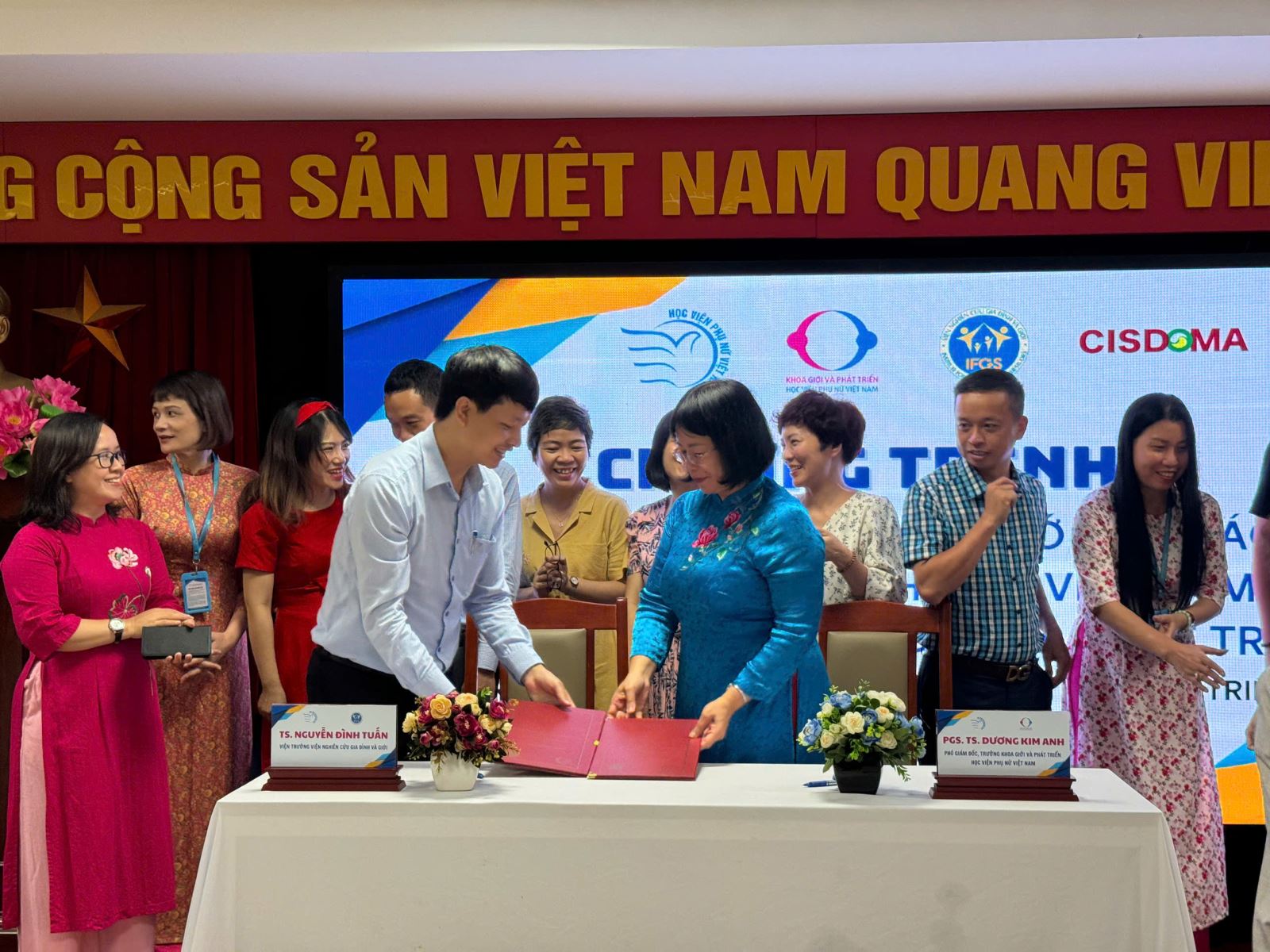 Lễ Ký kết biên bản ghi nhớ hợp tác giữa Học viện Phụ nữ Việt Nam với Viện Nghiên cứu Gia đình và Giới
Lễ Ký kết biên bản ghi nhớ hợp tác giữa Học viện Phụ nữ Việt Nam với Viện Nghiên cứu Gia đình và Giới
-
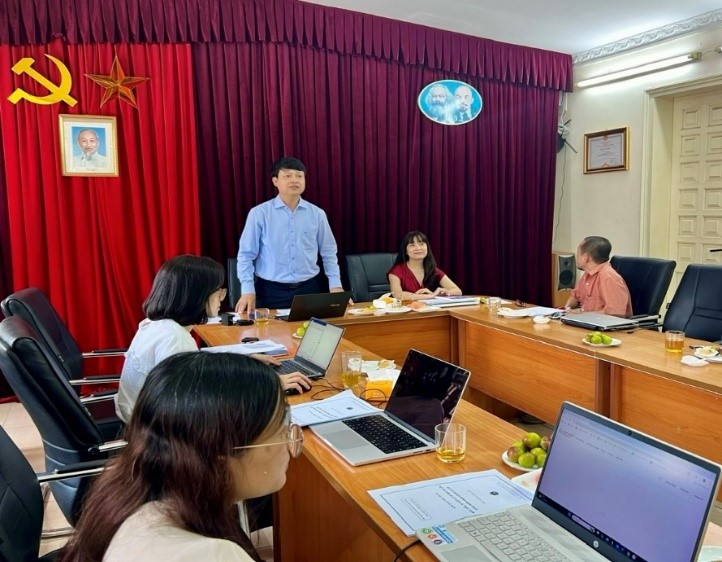 Hội thảo khoa học: "Bộ chỉ số gia đình hạnh phúc: Một số vấn đề lý luận và thực tiễn"
Hội thảo khoa học: "Bộ chỉ số gia đình hạnh phúc: Một số vấn đề lý luận và thực tiễn"
-
 Tọa đàm khoa học "Vận dụng lý thuyết trong nghiên cứu khoa học xã hội"
Tọa đàm khoa học "Vận dụng lý thuyết trong nghiên cứu khoa học xã hội"
-
 Hội nghị Đối thoại giữa Chi ủy, Lãnh đạo viện với đảng viên, viên chức và người lao động Viện nghiên cứu Gia đình và Giới 6 tháng đầu năm 2024
Hội nghị Đối thoại giữa Chi ủy, Lãnh đạo viện với đảng viên, viên chức và người lao động Viện nghiên cứu Gia đình và Giới 6 tháng đầu năm 2024
-
 Chi bộ Viện nghiên cứu Gia đình và Giới tổ chức sinh hoạt chuyên đề: Đoàn kết thống nhất trong Đảng theo tư tưởng Hồ Chí Minh
Chi bộ Viện nghiên cứu Gia đình và Giới tổ chức sinh hoạt chuyên đề: Đoàn kết thống nhất trong Đảng theo tư tưởng Hồ Chí Minh
-
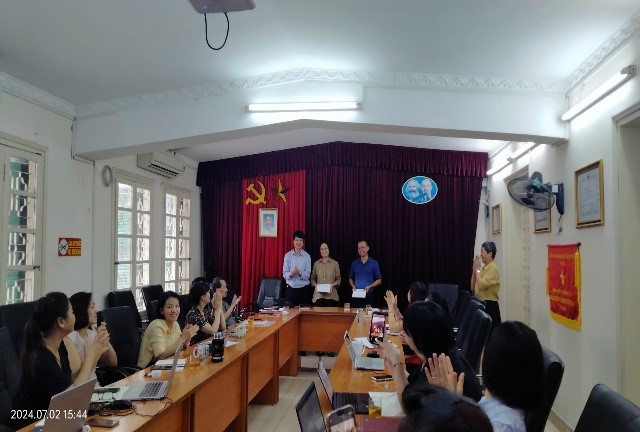 Cuộc thi “Nét đẹp và giá trị gia đình Việt Nam” hưởng ứng Ngày Gia đình Việt Nam 2024
Cuộc thi “Nét đẹp và giá trị gia đình Việt Nam” hưởng ứng Ngày Gia đình Việt Nam 2024
-
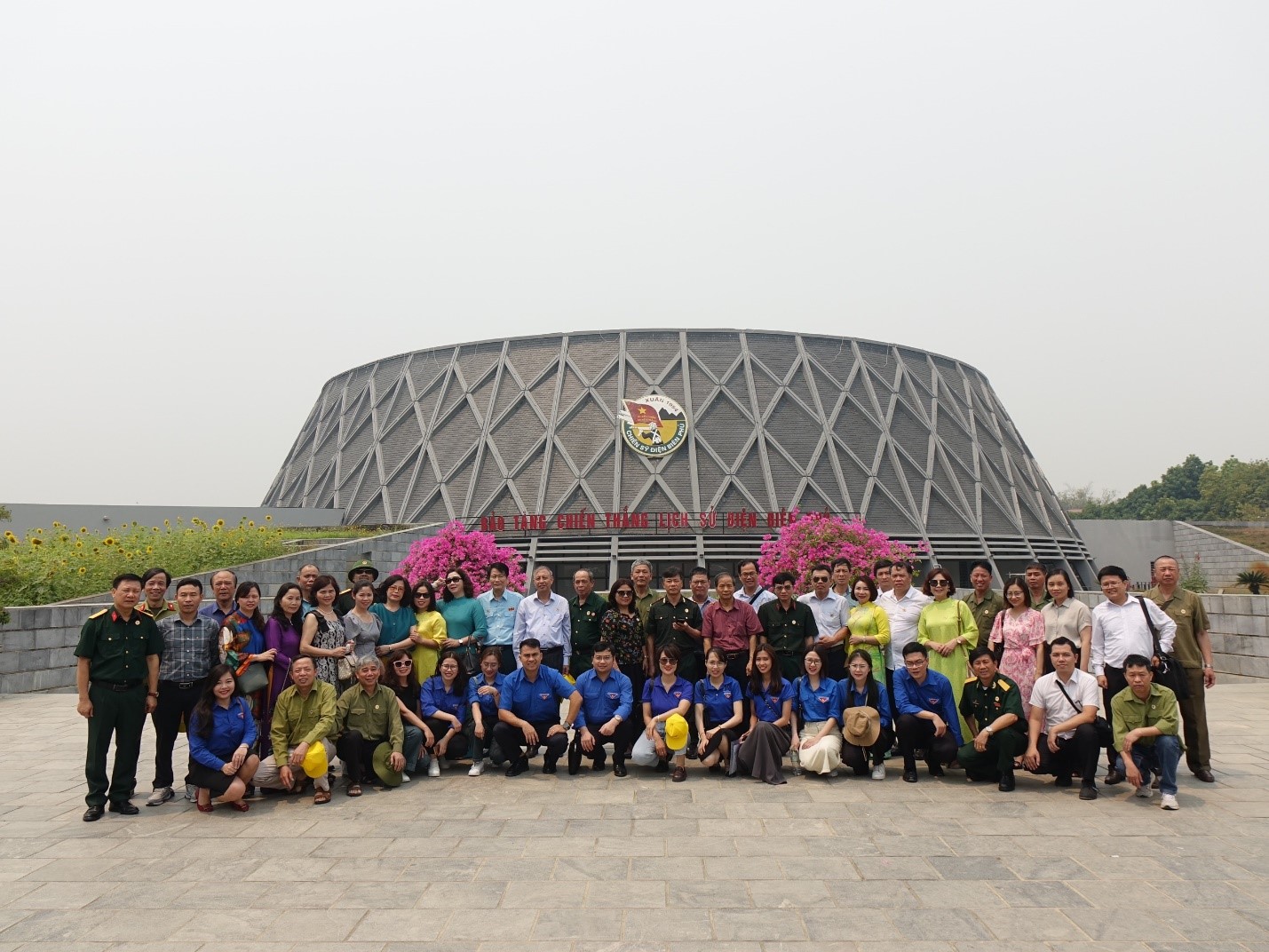 Hội Cựu chiến binh, Đoàn Thanh niên Viện Hàn lâm Khoa học xã hội Việt Nam đi thăm lại chiến trường xưa Điện Biên Phủ
Hội Cựu chiến binh, Đoàn Thanh niên Viện Hàn lâm Khoa học xã hội Việt Nam đi thăm lại chiến trường xưa Điện Biên Phủ
- Tổng mục lục Tạp chí 2023
-
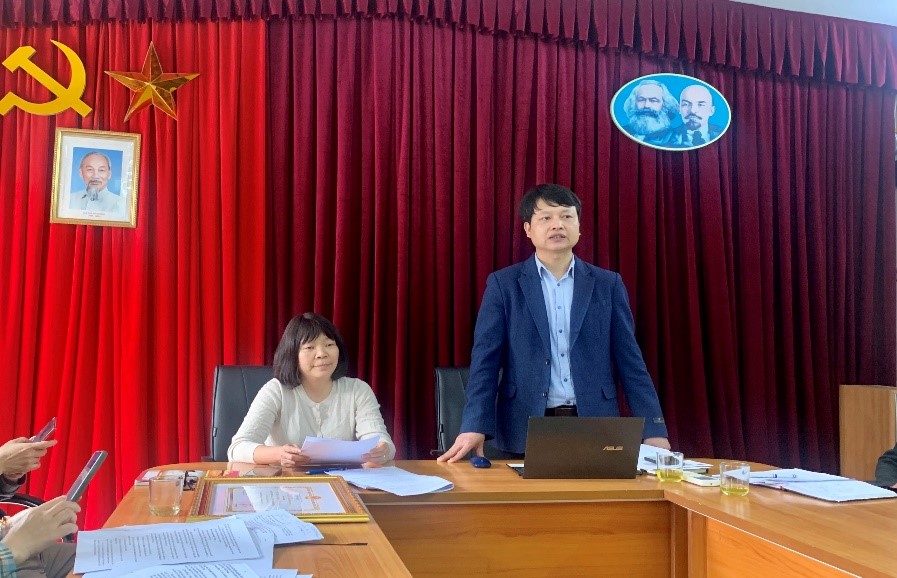 Viện nghiên cứu Gia đình và Giới phát động phong trào thi đua và ký Giao ước thi đua năm 2024
Viện nghiên cứu Gia đình và Giới phát động phong trào thi đua và ký Giao ước thi đua năm 2024
Liên kết web
Số lượt truy cập
23
5407463
Chi tiết tạp chíNo. 1-2014
Training on Gender Responsive Economics and Social Protection
The training course on gender responsive economics and social protection was held in Hanoi from 10th to 15th February, 2004 in Hanoi. This is an activity within the project "Strengthening gender equality capacity for staff of the Institute For Family and Gender Studies in 2013 -2014" financed by the Australian International Development Agency (AusAID), carried out by UN Women and IFGS. Purpose of this training course was to enrich their knowledge on Gender and Development Economics, as well as to provide gender analysis tools and frameworks in connection with social protection for researchers of IFGS.
The training course followed the approach of co-participation, combination between lectures, discussions, exercise and teamwork. The course was designed to fit diverse levels of participants, comprising many modules, including basic definitions on gender and economics; unpaid work; employment and labour market; gender and poverty; gender and macroeconomy.
In most countries, the time spent on unpaid work is more than on paid work. The module on unpaid work helped the participants to have a deeper look into unpaid work definition and understand why unpaid work was not put into consideration or even ignored in policy making process. The module also aimed to highlight common mistakes in collecting and presenting economic and social data. The module also gave general instructions related to unpaid work issue in policy making process. In addition, it also suggested methods to estimate and evaluate unpaid care giving work.
The analysis on unpaid work as an important factor in allocating time and resource in economic activities, was followed by the module on Employment and Labor Market which gave gender analysis under the aspect of employment and labor market in the Asia and Pacific context, including such issues as labor supply and divided employment structure, giving a broader picture on allocating time and resources. The module also included mapping exercise and discussion on employment under gender aspect.
The module on Gender and poverty presented definitions and measurements on poverty in income and consumption, at the same time exploring the relationship between poverty and household structure. The module also gave participants ability to uncover gender dimensions of poverty mobility.
In order to help participants to study gender sensitive macroeconomics, the module on Genders and macroeconomics introduced and presented in details some important aspects of macroeconomics including structure of social accounting, flow of income and products, gross domestic spending, multipliers, accelerators and analysis of two differentiation ranges. Macroeconomics is believed to be inattentive to gender triggered relationships. It studies and explores economic environment in general, but rarely touches gender issue, if any, it keeps neutral attitude. When you look into macroeconomics under gender aspect, you also look into the interactive relationship between them. Gender analysis in macroeconomics stresses on both aspects: (i) the penetration of gender relationships in macroeconomics definitions; and (ii) under-evaluation of economic activities, such as unpaid care-giving, in macroeconomic indicators.
In the end of the training, participants were split into groups of three people to do exercise of designing gender responsive social protection in Vietnam. The exercises then were collected, selected and developed further as research themes in the future.
Conference on Reviewing IFGS's Research Activities 2013 and Plans for 2014
On reviewing the results of research activities in 2013 and discussing research plans for 2014 of the Institute for Family and Gender Studies (IFGS), on 30th December 2013, IFGS held a conference on reviewing IFGS's research activities 2013 and research plans for 2014 in Ha Noi.
The conference was attended by all IFGS researchers of all generations and representatives from Vietnam Academy of Social Sciences (VASS). Associate Professor Nguyen Huu Minh, Director of IFGS, reviewed the results of research activities done by IFGS in 2013 and presented the research plans for 2014. Accordingly, in 2013, IFGS carried out the following research:
03 ministerial-leveled studies on:
- Family relations in Northern Central region in the context of industrialization, modernization and international integration;
- Vietnamese family value systems from sociological perspectives: A case study in Thai Binh province;
- Conceptions and influencing factors of family happiness: A case study of Quang Ngai province.
These are emerging issues in Viet Nam recently and absent in recent publications. These ministerial level studies will be done in 2013 and 2014. In 2013, the studies have completed desk study tasks, research tools and field surveys. Data analysis and report writing will be completed in 2014.
In 2013, Vietnam Academy of Social Sciences resumed the implementation of institute-leveled studies which aim at enhancing the research and analytical skills of researchers, especially young and mid-career researchers in an effort to develop the next-generation qualified researchers. Given this goal, in 2013, IFGS has carried out 09 institute-leveled studies on:
- Some factors influencing the relationship between the elderly and children in families: A case study in Bac Ninh province
- Children's rights to health care: Some emerging issues in Viet Nam
- Value orientation of adolescents and young people in traditional handicraft villages in the Red River Delta in sustainable development of traditional handicraft villages
- Some issues on researching violence against the elderly
- Current gender issues in informal sector
- Gender and employment in rural areas since WTO accession
- Child care in the family from gender perspectives in the globalization context
- Vietnamese children's access to kindergarten education at present time through recent national surveys
- Divorce: Some theoretical issues, methods and research topics
The implementation of this system of institute-leveled studies has proven efficient in the way that it creates conditions and opportunities for developing research skills for researchers while providing evidence and research findings in different thematic topics for IFGS's research plans.
In 2013, Vietnam Academy of Social Sciences assigned IFGS to design the two research programs at national level. The first program is to research comprehensively on Vietnamese families in the context of industrialization, modernization and international integration. The research results are expected to provide inputs for the country in completing the goal of developing wealthy, progressive and happy families. The second research is on happiness and national indicators of happiness in Vietnam. So far, the outline and design of these two research programs have submitted to the Prime Minister for approval of implementation.
In addition to annual research projects, IFGS cooperated with other institutions and organizations in several research activities:
- Participating in field surveys for the Population Health Survey 2013 which was coordinated by Vietnam Academy of Social Sciences and American Social Sciences Research Council.
- Cooperating with Vietnam Women's Union in writing a research report on appropriate nutrition for young children in Vietnam
- Collaborating with Hanoi Committee of Ethnicity in carrying out a survey on Cultural life of ethnic minority people in Hanoi
- Partnership with Department of Family under Ministry of Culture, Sports and Tourism in publishing a book on domestic violence situation and solutions in Vietnam.
- Working with Hanoi Department of Culture, Sports and Tourism in implementing a survey on labour division in the households amongst staff of Hanoi Department of Culture, Sports and Tourism.
On the occasion that the year 2013 was declared as the Year of Vietnamese Families, IFGS organized successfully international workshop: "Vietnamese Families in the Context of Industrialisation, Modernisation and International Integration from A Comparative Perspective" on 7th - 8th November 2013 in Hanoi. The workshop which was attended by Vietnamese and international researchers and policy makers of family issues provided forum for several discussion and academic exchanges between Vietnamese researchers and international scholars.
Conference participants have discussed and proposed research plan of the IFGS for the year 2014. This plan aims to provide theoretical and practical arguments for building and implementing policies on family, gender equality, women and children issues.
A Cultural Analysis of the Life Experiences of Vietnamese Transnational Brides in South Korea
The study used qualitative methods to investigate various relationship situations in which marriages began in Taiwan and couples relocated to Vietnam. The analysis is focused on the perspectives of Taiwanese men and Vietnamese women and how it affected their lives. For flexibility, the purposeful and snowball sampling techniques were used. The findings of this study support the policy of marriage migration from both the Taiwanese and Vietnamese governments and can provide the basis for raising awareness of all parties involved, including the governments of both countries. Finally, this research is useful as a reference to other researchers who want to study foreign marriages in Taiwan.
The process of gender socialization plays an important role on influencing how women and men involved in political life. In Vietnam, this process is still immersed in a Confucian context that pulls women back in the political arena. Gender norms formed in the past are continuing to put pressure on women in a harder way than on men. Consequently, despite many efforts of the Vietnamese government, its Communist Party, and related agencies over more than half a century since the August Revolution of 1945, Vietnamese women have attained limited status and power in the political field, especially in leadership roles. This article provides information on how such gender norms were formulated under cultural context throughout history and their influences on how political elites feel about women’s political participation in Vietnam today.
Patrilocal Co-residence in Rural Vietnam
This paper explores the living arrangements after marriage of residents in four rural communes in Vietnam by using data from project "Rural Families in Transitional Vietnam" funded by SIDA. It is found that patrilocal co-residence after marriage is the most popular form of residence. Later marriage, having either husband or wife working in the state sector, and wife's occupation in non-agriculture sectors are the most important factors which decrease the probability of ever-living with the husband's parents after marriage. Although the trend of patrilocal co-residence is relatively stable during the last 60 years, the proportion of those who reside with the groom's family for more than 3 years has been decreasing substantially, especially for those who married after 1975. Main factors decreasing the duration of co-residence with the groom's family are: 1) marriage cohort with significant decreasing proportion of co-residence with the groom's family for more than 3 years of couples who married after 1975 compared to those married during 1948-1975. Effect of the war is one important factor of this trend; 2) number of siblings of the husband. In words, the effects of urbanization and industrialization in Vietnam seem not to be strong enough to make structural changes on living arrangements in society: living with groom's family after marriage has been maintained as a norm in society. The results are related to the findings from other countries in the region, which show persistence in patrilocal co-residence after marriage, and a substantially shorter length of time of living together.
Social Protection in Vietnam: Issues, Challenges and Prospects
Like many other developing countries, Vietnam has already begun to establish social protection systems. However, Vietnam' current social protection system is complex and faces many challenges. It can be regarded as low coverage, inadequacy, lack of efficiency, coordination and transparency. In recent years, Vietnam has increasingly embraced integration, it is not surprising that social protection has become an important public policy issue. To clarify some issues, challenges and prospects of the social protection in Vietnam, this article focuses on the growing need for restructuring the social protection of Vietnam and analyses the current pillars of this social protection system including the social assistance, the social insurance, and the policies and programmes on labour market. The research findings suggest that good management systems should be developed to ensure that services under the three pillars are friendly and can be reached by the most needy people. And the government has implemented social protection policies and carried out the poverty reduction programs to address this emerging social consequences.

